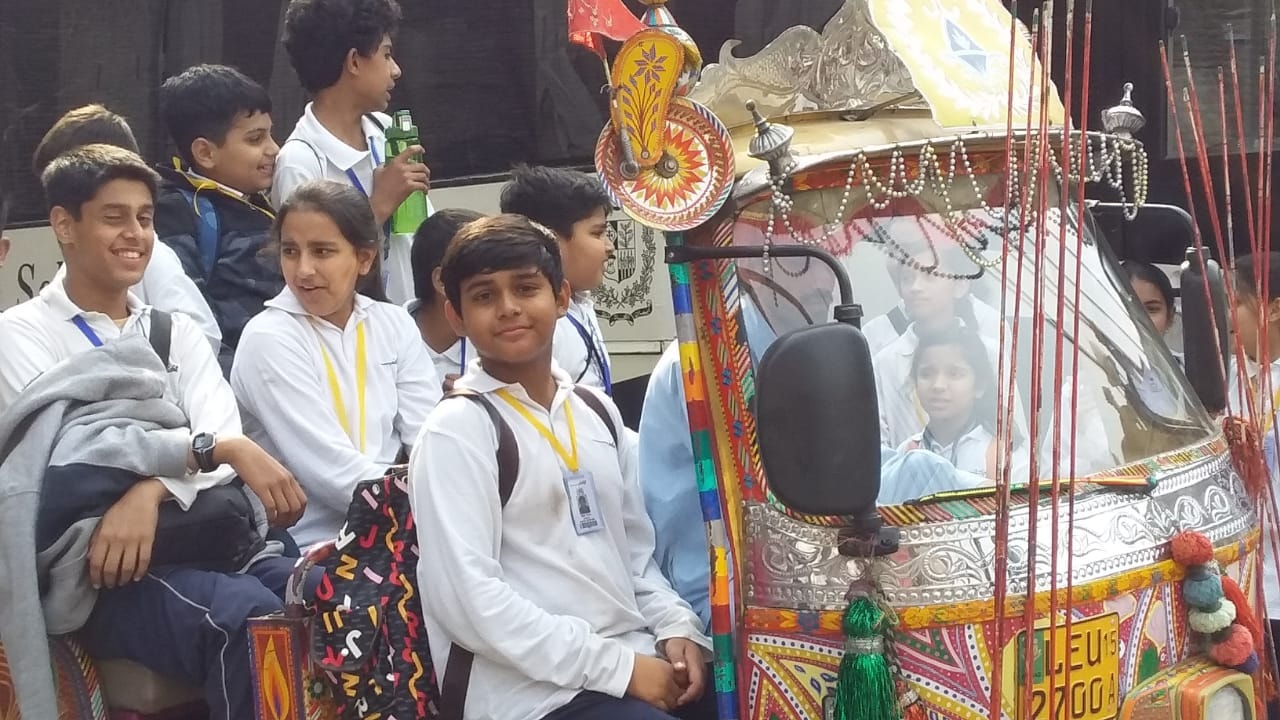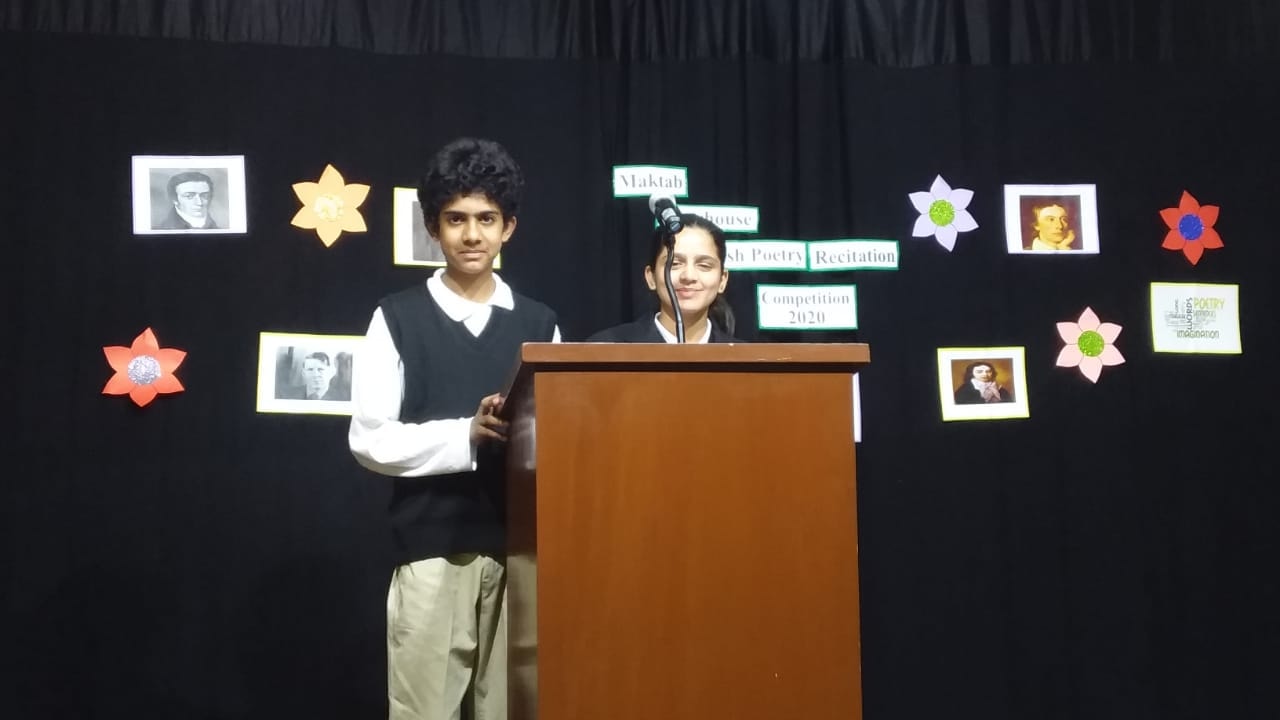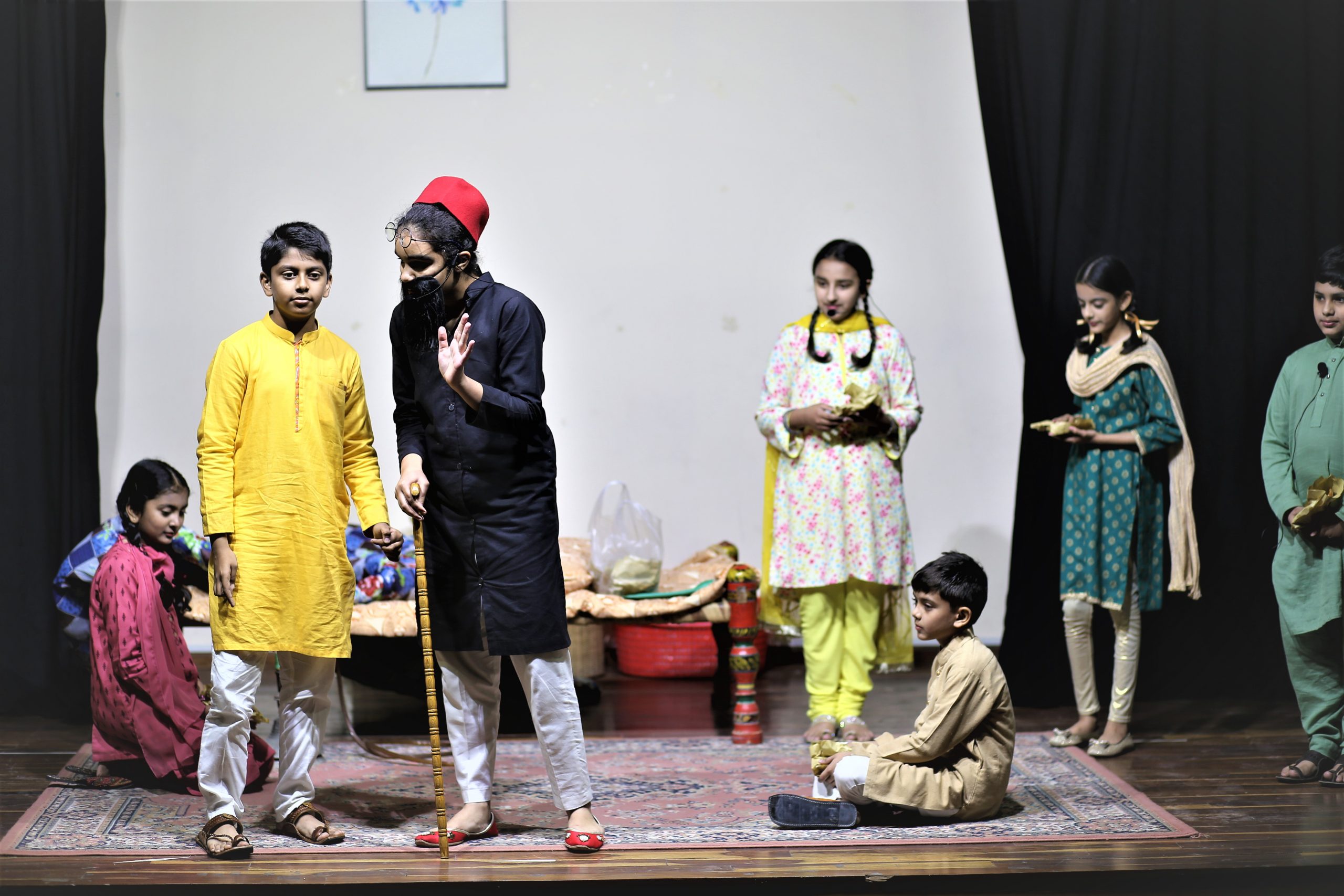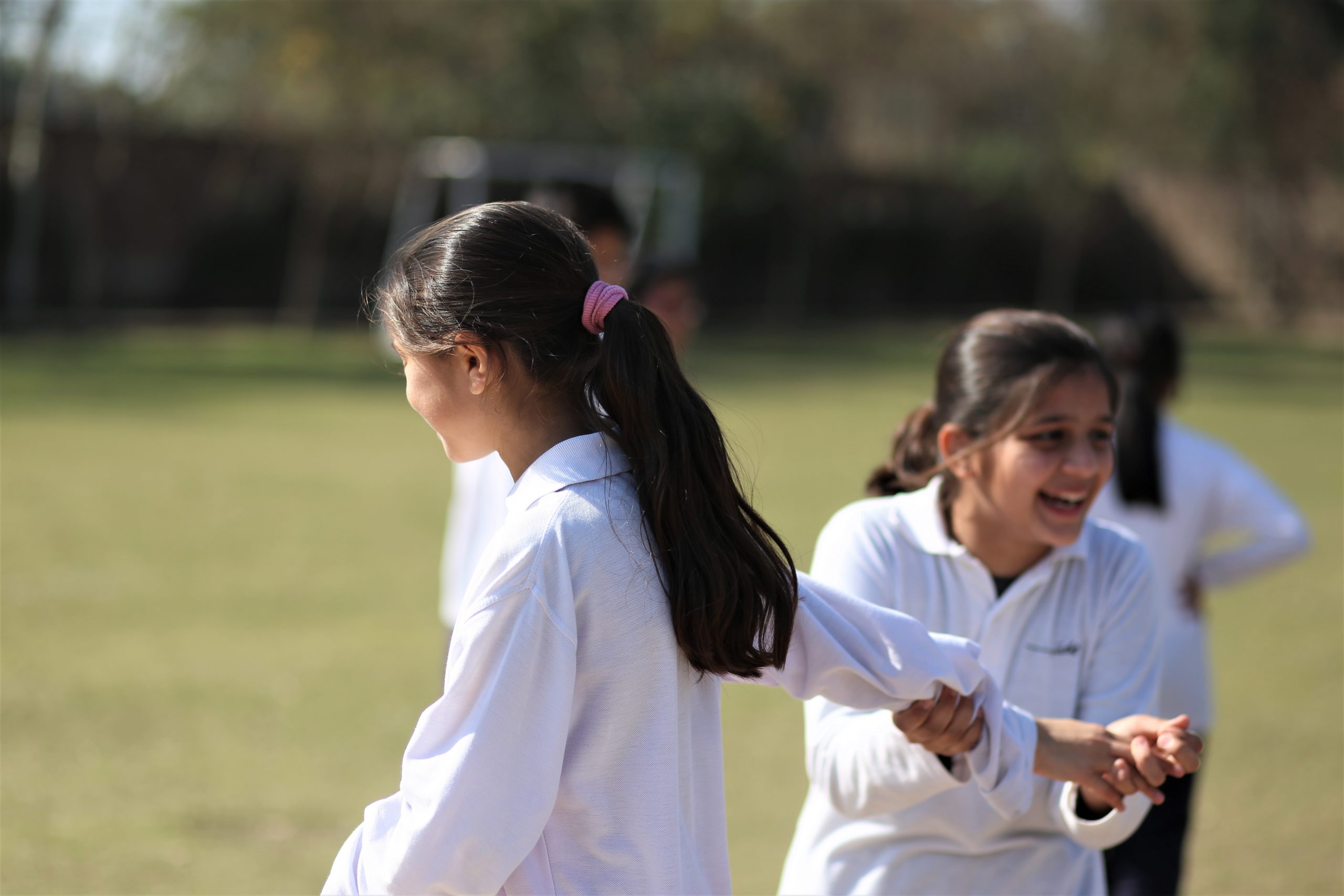




Maktab’s Middle School comprises Grades VII-IX. The curriculum continues to build on the strong foundations laid in Junior School. It emphasizes Urdu and English literature, theoretical and applied mathematics, an experiment-led approach to natural science, hands-on programming and robotics, and broad exposure to social studies.
Maktab is proud of the fact that it is located in Lahore, a UNESCO designated City of Literature. The school draws on the rich intellectual tradition of the city that boasts of world class writers such as Muhammad Iqbal, Faiz Ahmed Faiz and Saadat Hasan Manto. The main purpose of the Middle School Urdu curriculum is to introduce students to high quality Urdu literature. The culmination of the Middle School years is Nazir Ahmad Dehlvi’s Tobat-un-Nasooh and Ibn-ul-Waqt. Students are not only exposed to the sublime language of Nazir Ahmad, but also learn about his intellectual growth and radical modern viewpoints on various social and philosophical issues
We believe that a good English programme at the Middle School level should address the unique needs of each learner and adapt instructional strategies to teach to the students’ strengths, including a wide range of engaging materials, with diverse levels and genres so that there are multiple ways for students to experience literacy learning. The English programme continues to develop students’ ability to read with both enthusiasm and an eye for detail and to write with force, clarity, and appropriate vocabulary and sentence structure. Students are exposed to both language and literature with a focus on building and strengthening their speaking, listening, reading, and writing skills.
Students grapple with such original texts as The Giver, Boy, Tales of Childhood, Merchant of Venice, Macbeth, Kidnapped, short stories by Edgar Allan Poe, Charlotte Perkins Gilman, and Gabriel Garcia Marquez, and poetry by Emily Dickinson, Shakespeare, Yeats, etc.
Grammar rules and vocabulary words are learned both in the context of the student’s writing and reading and through workbook exercises. Students become proficient in crafting expository paragraphs and essays, and they continue to use their imaginations to compose their own creative pieces.
An interdisciplinary unit with science and library builds students’ research and writing skills while emphasizing the importance of writing well in all subjects. Middle School is a time of tremendous growth, and Maktab students rise to its challenges.
Maktab boasts of a uniquely rich mathematics curriculum in its Middle School years. We offer two streams: theoretical mathematics and applied mathematics. The applied mathematics curriculum lays a solid foundation for O level and A level mathematics. The theoretical mathematics option is only available to students who score about 90% marks in their Grade 6 exams. The theoretical mathematics option is a three-year programme that is based on studying two timeless classics: Planimetry by A. P. Kiselev’s and Algebra by I. M. Gelfand and A. Shen. The books are masterpieces of Russian mathematical writing.
Throughout Middle School, we emphasize that science is not simply a series of memorized facts and formulae but a way of looking at the universe, a mode of asking and answering relevant questions; and the way to answer those questions is by experimentation.
Our science curriculum touches on the three major sciences. In Grade VII we start with a serious study of chemistry and biology. The class goal is to connect chemical theory to everyday life experiences and applications. Students explore properties of matter, atomic theory, chemical and physical transformations in detail. Similarly biology, in age-appropriate complexity and detail, is presented in Grade VII and VIII. Students are introduced to how different biological systems work together to create a functional whole. Many genetics, health, and pathology topics are investigated over this time span. Throughout Grade IX, the focus is on the fundamentals of physics. Here too, Maktab continues to build on its unique experiment-led approach, with its emphasis on data collection and deduction. Hence the middle school curriculum prepares students with a strong background in the three fundamental sciences.
The computer science curriculum continues with the graphical programming environments that the children have become familiar with in Junior School.
At the beginning of Middle School, students learn to type and are introduced to commonly used applications. In the second term of Grade VII students start to tackle serious issues in computer science. Students are introduced to Python programming. They draw on their programming experience in Junior School to learn how to code in an adult programming environment. Students also learn to collaboratively work on large projects and coherently present their results to the class.
In Grade IX, Maktab introduces hardware such as the Arduino and the Raspberry Pi. Children learn to use their programming skills to control robotic buggies and build home automation systems. Children continue to work on group projects and present their results to the school. This year-long course brings together all that has been learned by the students in their computer science and robotics classes at Maktab.
At Maktab, social studies is broadly interpreted to mean the study of the interconnectedness of the world––how its peoples, institutions, and societies behave and interact with one another. As such, social studies forms the backbone of the Maktab curriculum. Children are exposed to a diverse set of materials ranging from primary sources in early Islam to oral histories of the Tarbela Dam affectees to documentaries on Ibn Batuta to current newspaper articles on outstanding issues such as the environment and water conservation. Students are encouraged to use critical thinking and a variety of primary sources to come to their own substantiated conclusions. Children are made aware of biases inherent in all historical sources.
As per requirements of the Government of Pakistan.
The music curriculum at Maktab continues to build on the expertise students have gained in their Junior School years. Each student is encouraged to gain proficiency in at least one instrument. They are introduced to age appropriate Urdu poetry of poets such as Iqbal, Faiz, Faraz and Jalib. Students also continue their vocal training and are encouraged to sing solo. All of this exposure to timeless poetry and classical instruments is done under the expert guidance of a trained tabla player.
